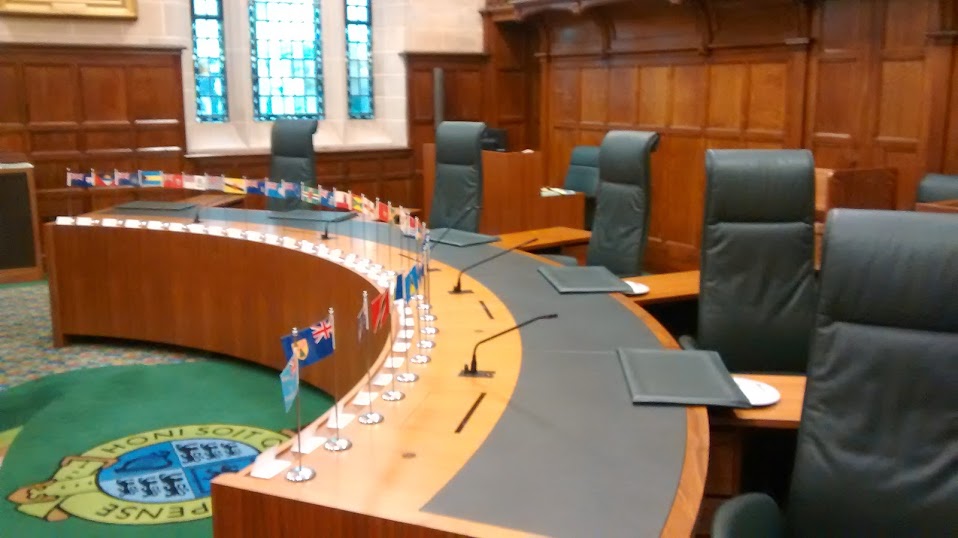Grand View Private Trust Co Ltd and another (Respondents) v Wong and others [2022] UKPC47
On 8 December 2022, the Privy Council handed down the long-awaited judgment in the conjoined appeals of Grand View Private Trust Co Ltd and another (Respondents) v Wong and others [2022]UKPC47.
Background
The decision follows lengthy litigation regarding the recovery of assets worth more than USD560 million relating to two Bahamian law governed trusts set up in 2001 by brothers YC Wang and YT Wang from Taiwan; the Global Resource Trust No 1 (the “GRT”) and the Wang Family Trust (the “WFT”).
The GRT was a discretionary trust established for the benefit of YC Wang and YT Wang’s children and remoter descendants, with the principal asset being an investment holding company. The WFT was a purpose trust created for both charitable and non-charitable purposes with the principal assets being shares in investment companies.
In May 2004, YC Wang expressed in a letter to his children that he would like to bequeath his wealth to the public to improve public welfare and perpetuate his businesses rather than to his children who were then enjoying ample wealth. It was noted that YT Wang also communicated parallel views.
In 2005 YC Yang had communicated to his daughter that she, her siblings and cousins would inherit significant wealth on the death of their respective parent and that there was therefore no longer any need for the GRT.
In September 2005, taking into account the wishes of YC Wang and YT Wang, the GRT trustee resolved to execute an irrevocable deed pursuant to which:
- the trustee of the WFT was added as a beneficiary or ‘object’ of the GRT,
- all other current and future discretionary beneficiaries (the children and remoter descendants of YC Wang and YT Wang) were excluded from the GRT;
- all the assets of the GRT were to be appointed out of the GRT to the WFT by way of transfer to the trustee of the WFT; and
- following such distribution to the trustee of the WFT, the GRT be terminated.
It is important to note that the GRT trustee exercised the power of appointment to appoint the assets to the WFT as opposed to the power to transfer capital or income to another trust.
Despite the significance of the appointment to the WFT by the GRT trustee, the GRT trustee did not seek court approval for the appointment.
YC Wang died in 2008 and YT Wang died in 2014.
Proceedings
In February 2018, family members commenced proceedings in Bermuda on the basis of breach of trust on four grounds, claiming the GRT trustee:
- took into account irrelevant considerations and did not act for the benefit of the beneficiaries of the GRT;
- acted in excess of its powers;
- failed to exercise its powers for the purpose for which they were conferred; and
- acted in breach of the rule against remoteness of vesting in that it transferred trust assets to the WFT, a purpose trust.
In December 2018, judgment was issued highlighting that the decision made by the GRT trustee was inter alia, in excess of its powers and taken for an improper purpose.
In June 2019 the Supreme Court of Bermuda, stated that a trustee’s powers of amendment cannot be used to alter the ‘underlying character’ or ‘substratum’ of a trust (in this case being the establishment of the GRT for the benefit of YC Wang and YT Wang’s children).
The decision of the Supreme Court was reversed by the Court of Appeal of Bermuda in April 2020. The Court rejected the existence of a substratum rule and stated that the relevant factors are:
- whether the exercise of a power is within the scope of the trust instrument; and
- whether the power has been exercised for a ‘proper purpose’.
The judgment of the Court of Appeal stated that when taking decisions in relation to the power to add or exclude beneficiaries, trustees do not have to take into account the interests of the existing beneficiaries of the trust.
However, the Court of Appeal granted permission to appeal to the Privy Council.
The Appeal
The Privy Council did not accept that there was a substratum rule and thought that the power of addition and exclusion of beneficiaries could not be seen to be a power of amendment.
The Privy Council emphasised that the key question was whether such power (a fiduciary one) was exercised outside of the purpose for which the power was bestowed.
The Privy Council held that the purpose of the power of addition and exclusion was to further the interest of the beneficiaries which was demonstrated by the fact that the GRT was set up as a family trust, with family members being the only named objects and being the ultimate beneficiaries at the expiry of the trust period. The purpose of the trust is of key importance.
The Privy Council held that the action taken by the GRT trustee in transferring the assets to the WFT was for an improper purpose (in that the power was destroying, rather than advancing, the interests of the objects of the GRT) and therefore, such decision was void.
Letter of wishes
The Court of Appeal and the Privy Council had contrasting views on whether a letter of wishes executed at any time should be considered by trustees when making decisions. The Court of Appeal highlighted that a letter of wishes created at any time was acceptable. In contrast, the Privy Council stated that only a letter of wishes made simultaneously with the execution of a trust deed was admissible.
The view highlighted by the Privy Council is pragmatic. If a letter of wishes is created amending a settlor’s original wishes regarding beneficiaries of a trust prior to the execution of the trust deed, there is a hazard of re-purposing the trust.
Points for consideration
Although the decision by the Privy Council is merely persuasive authority, the lengthy litigation highlights the importance of:
- drafting the scope of a trustee’s powers correctly;
- explaining to trustees any limitations on their powers and their understanding of such;
- trustees acting within the scope of the intention or proper purpose for which their powers are given (i..e in the interests of beneficiaries);
- settlors being mindful of their intentions at the outset and the need to consider future possibilities;
- informing settlors that any letter of wishes prepared by them is not binging on the trustees and should be consistent with the terms of the trust deed.
Our Trust and Private Client Team have extensive knowledge on all matters associated with trusts. If you require any further information or would like to make an appointment to meet with one of the team, please contact DQ Advocates on 01624 626999.
Download PDF version of this article here
Disclaimer
The information and/or opinions contained in this article is necessarily brief and general in nature and does not constitute legal or taxation advice. Appropriate legal or other professional advice should be sought for any specific matter. Any reliance on such information and/or opinions is therefore solely at the user’s own risk and DQ Advocates Limited (and its associates and subsidiaries) is not responsible for, and does not accept any responsibility or liability in connection with any action taken or reliance placed upon such content.





